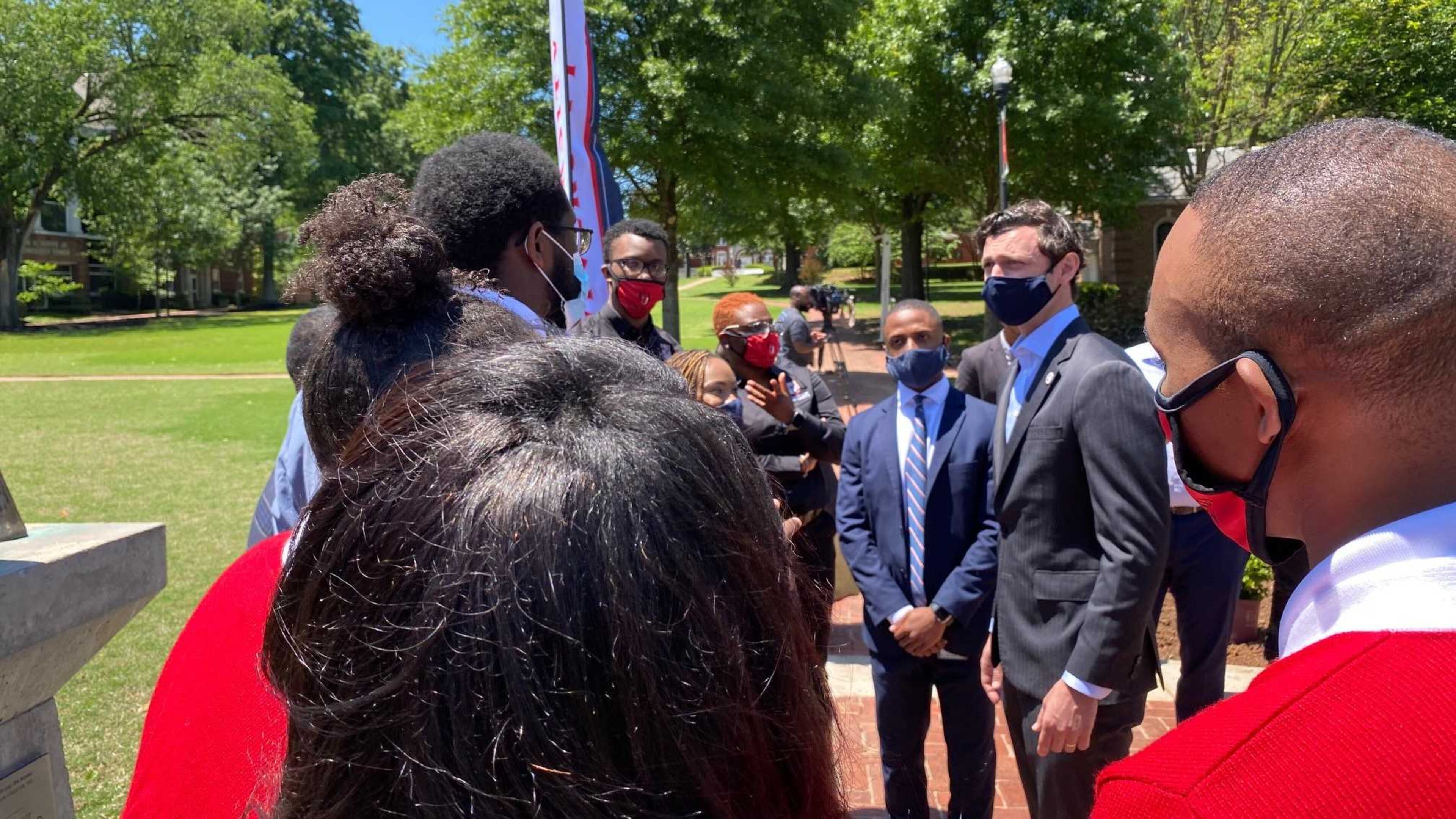Atlanta HBCUs get millions for student aid, campus projects

Three Atlanta area congressmembers visited the city’s historically Black colleges and universities Friday to celebrate more than $30 million in federal funds soon coming to the schools for student aid and much-needed campus projects.
The lawmakers and leaders of the schools, though, said more federal action is needed to provide help, specifically through President Biden’s $2 trillion infrastructure proposal, and by increasing Pell grants for low-income students to help pay their tuition.
The funding discussed Friday is coming from the American Rescue Plan, a $1.9 trillion COVID-19 relief bill passed largely along party lines and signed into law by Biden in March. U.S. Sen. Jon Ossoff, D-Ga., said in remarks at Clark Atlanta University that lawmakers must sustain that support for the schools.
“HBCUs are gems in our nation’s system of higher education. HBCUs provide an essential service, not just to the Black community here in Georgia, but to the entire nation and the entire world,” Ossoff said.
Fifty percent of the money each U.S. school receives must go to students. The funds will be disbursed in a few weeks, the first-year senator said.
Joining Ossoff at Clark Atlanta were Democratic U.S. representatives Nikema Williams and Hank Johnson, who received his undergraduate degree from Clark College in 1976. Clark College and Atlanta University merged in 1988.

There are nine accredited HBCUs in Georgia. Five are in Atlanta. Morris Brown College is attempting to regain its accreditation.
The Atlanta HBCUs, all private, have historically received less money in gifts from donors and enroll more lower-income students than predominantly white institutions, thus making it tougher to maintain campus facilities and offer some academic programs. HBCUs, the presidents of the schools noted, graduate 50% of the nation’s Black doctors and lawyers although they educate about 10% of Black college students.
“Imagine what we could do for this country if we had the kind of investment in our infrastructure that we require,” said Spelman College President Mary Schmidt Campbell.
Republicans have pushed back against the infrastructure plan, largely saying it’s too expensive. There’s been debate in Congress about how to address the nation’s rising student loan debt. Ossoff supports a plan to cancel up to $50,000 in debt per borrower. Biden has said he supports canceling up to $10,000 per borrower.
Darius R. Moore, 21, a graduating Clark Atlanta senior, said he was glad that one-half of the funding will go to students in grant aid.
“That leaves us satisfied in terms of the next generation (of students) will see a better day,” Moore said.
Funding for HBCUs
Here’s how much funding Atlanta’s three accredited undergraduate HBCUs will receive from the American Rescue Plan:
College/University Funding; Enrollment
Clark Atlanta University $16.4 million; 3,920 students*
Morehouse College $7.8 million; 2,238 students
Spelman College $7.4 million; 2,120 students
* Clark Atlanta University has about 600 graduate students.
Sources: U.S. Department of Education, U.S. Sen. Jon Ossoff’s office.



